Want to be seen here?
Connect your company to the marketplace for free.
Time for a display campaign? Ocast has gathered thousands of solutions in one place so you can get started quickly. Fill in the form and start receiving offers for campaign proposals.

We connect people and reflect life in East Contra Costa County. As the premier publisher of weekly newspapers, special print publications and thepress.net website, we provide everything there is to kn...

Champion Newspapers publishes an award-winning community newspaper serving the Chino Valley area in Southern California. The Chino Valley Champion is delivered by carriers and by mail to subscribers ...

INDIA-WEST, Weekly Newspaper India-West, the largest and most prestigious weekly newspaper on the West Coast, was established in 1975. India-West readers are among the nation's single most affluent an...

The Alameda Sun is Alameda’s only independently owned and operated newspaper founded in 2001. The paper is owned by Alameda resident Eric J. Kos and Oakland resident Dennis Evanosky. Home-delivered fr...
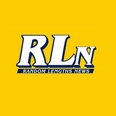
Random Lengths News, the independent, progressive newspaper of the Los Angeles and Long Beach Harbor Area for more than 40 years, cares about our youth and future journalists. That is why it offers a ...
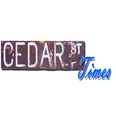
Cedar Street Times was established September 1, 2008, and is published weekly at 306 Grand Avenue, Pacific Grove, California 93950. We were adjudicated a newspaper of general circulation for Monterey ...

The Times-Advocate, which first launched an Escondido-based website a year ago, is not a daily publication. It’s a community newspaper currently publishing monthly, according to an unattributed staff ...

The Mid Valley Times is a weekly newspaper, published on Thursdays, serving Reedley, Dinuba, Sanger, and surrounding communities in Fresno County and Tulare County, California. It was known as the Ree...

The Press Banner is a local newspaper serving Scotts Valley and San Lorenzo Valley, California in Santa Cruz County. It is published once per week on Fridays.The Press Banner, is the only weekly newsp...
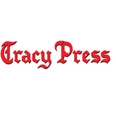
It was April 2, 1898, when these news items broke in the Tracy Press. Thousands more followed in subsequent years. An original copy of the first paper that printed those items is kept in the Tracy His...
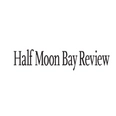
The Half Moon Bay Review is an award-winning online and print community news source serving the San Mateo County Coastside since 1898. The Review is proud to employ a staff of trained journalists who ...
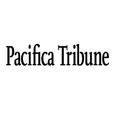
For more than 60 years the Pacifica Tribune has served the citizens of Pacifica community. Actually, the community has had a newspaper since the 1930s. The first community newspaper was called Sharp P...
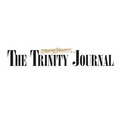
The weekly Trinity Journal newspaper has been serving Trinity County, Calif., for more than 166 years as an information source, a sounding board, and much more. Of course now, with its Web site and ot...

The Turlock Journal is a newspaper in Turlock, California. It is owned by 209 Multimedia. The Journal was a daily newspaper until 2004, when it was reduced to twice-weekly publication. It has a paid c...

The hometown newspaper and media organization for Valley Center and surrounding communities. It all began in 1974 with an ambition to bring a publication to Valley Center which would last through the ...

The Ojai Valley News has been the journal of record for the Ojai Valley since 1891. We are a weekly adjudicated publication, published Fridays in print, with copies available for sale at racks and new...

Mineral King Publishing is the home of The Foothills Sun-Gazette newspaper in Exeter, California. Also publisher of Seasons, Holiday, Tulare County Football Preview, Central Valley Medical (CVM), the ...

The Ark is an independent, locally owned subscription newspaper that covers the people and activities of the greater Tiburon Peninsula, which includes Tiburon, Belvedere and Strawberry. It has twice b...

Purported to be California's oldest weekly publication, the Mountain Messenger is published weekly in Downieville and is Sierra County's only legal publication. The Mountain Messenger dates to 1853 an...

Founded March 21, 1885, The Madera Tribune has long served the city and county of Madera, and for most of its history has been an independent and locally owned voice of the San Joaquin ValleyThe Trib...
Display advertising, often referred to as banner advertising, involves visual ads placed on various websites, in contrast to text-based search ads that appear in search results on platforms like Google.
While search ads are focused on direct response, display ads aim at building brand awareness through engaging visual content like images or animations. Display advertising also enables retargeting, where ads are redirected to users who have previously visited your website, helping to keep the brand fresh in mind.
With opportunities to measure campaign performance and customize design and target audience, display advertising offers an attractive strategy for brands looking to enhance their online presence and effectively engage their target audiences.
The most effective formats and sizes for display ads vary depending on the platform and target audience, but here are some popular options:
Leaderboard (728x90 px): Positioned at the top of the page, this ad size captures visitors' attention right away.
Medium Rectangle (300x250 px): This size is flexible and can be placed in sidebars or embedded within content.
Large Rectangle (336x280 px): A larger variant of the Medium Rectangle that offers more visible space.
Wide Skyscraper (160x600 px): Often used in sidebars, offering a long, vertical ad space.
Mobile Leaderboard (320x50 px): Optimized for mobile devices and often placed at the top or bottom of the screen.
Consider adhering to industry standards and adapting ad format and size to the specific platform and your target audience. However, the emphasis should be on having well-thought-out content that engages and is relevant to your target audience with clear "Call to Actions" (CTA) to encourage clicks and conversions.
Measuring the effectiveness of your display advertising campaigns is crucial for evaluating the results of your campaign and for fine-tuning future marketing strategies. A first step could be to look over the Click-Through Rate (CTR), which represents the number of clicks your ad receives per view, providing an indication of the ad's engagement level. It is also important to track the conversion rate, which shows how many clicks are converted into desired actions such as sales or leads. Cost Per Conversion is another key indicator that helps you understand the cost-effectiveness of your campaign.
It may also be good to look at the impression rate, that is, how many times the ad has actually reached out and been displayed for brand-building purposes.
One of the major advantages of this type of advertising is its ability for audience targeting, where ads can be directed based on demographics, behavior, and retargeting, enabling a more personalized advertising experience. Moreover, with the use of various analytical tools, it becomes easy to track and measure the campaign's effectiveness by observing data on clicks, conversions, and views, which provides valuable insights.
However, display advertising also has its downsides. Ad blocking is one of the major challenges, where users can choose to block display ads, which in turn reduces the reach and effectiveness of your campaign. Ad fatigue is another downside, where ads that are shown too often can become irritating for the users, leading to decreased engagement and negative brand associations. Despite the ability for audience targeting, audience dilution can be a challenge if precise targeting is not used, which potentially leads to wasted marketing expenses. Additionally, the cost of display advertising can become significant, especially if the campaign is not well optimized to achieve desired results.
The cost of display advertising can vary based on several factors such as website, ad format, and target audience. Besides that, there are different pricing structures one can base on to adjust the cost according to the goal at hand. Below we list different pricing options for display advertising.
CPM (Cost Per Mille or Cost Per Thousand Impressions):
The price for 1000 views of your ad.
Often used for campaigns aimed at increasing brand awareness.
CPC (Cost Per Click):
The price you pay for each click your ad receives.
Used when the goal is to drive traffic to a website or increase interaction.
CPA (Cost Per Acquisition or Cost Per Action):
The price for each specific action or execution, such as a purchase or lead generation, that arises via your ad.
Used when the goal is conversions rather than just views or clicks.
CPL (Cost Per Lead):
The price for each lead generated through your ad.
Used in B2B marketing or for products/services with longer sales cycles.
CPV (Cost Per View):
The price for each viewing of a video ad.
Often used for video-based advertising campaigns.
Each pricing structure suits different goals and campaign types, and choosing the right pricing structure can help maximize the ROI for your display campaign.
Connect your company to the marketplace for free.
No commitments.